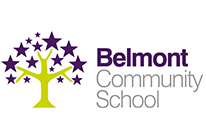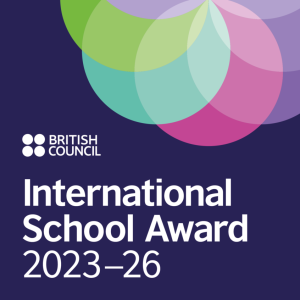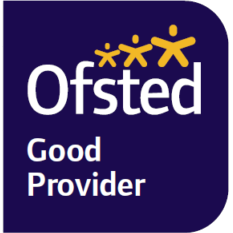Most children and young people in mainstream schools will have their special educational needs met through good classroom practice. This is called Quality First Teaching.
Early Identification of Need
In deciding whether to make special education provision to support educational, social, physical or emotional needs, we:
- Work in partnership with parents/carers and the student to identify support needed to meet agreed outcomes. The provision is planned and interventions are allocated to individual needs. The child takes an active role with setting their targets, discussing them with the SENCO/ LSA during reviews. The students have regular meetings with support staff to discuss their progress and support.
- Use of assessment tools and materials that provide important information for student review and support meetings. Reading, writing and numerical assessments are used in order to establish the extent of a student’s SEN and dictates what level of support is required.
- Consult with relevant external agencies, such as the Educational Psychologist, when necessary.
SEN Support
Where a pupil is identified as having a special educational need we follow a graduated approach which takes the form of cycles of “Assess, Plan, Do, Review”.
Assess. Firstly, the needs of the student are assessed. This is done by consulting with staff, parents and carers and the student themselves. We may also consult with outside agencies when necessary. We are committed to working with parents and carers to identify their child’s needs and the level of support they require. Parents and carers will be involved throughout the process.
Plan. Interventions and provisions that are needed to meet the aspiration of the student are planned in order to support the agreed outcomes. These are put onto a Student Support Plan.
Do. The interventions (such as Reading intervention) and support are put in place. A Pupil Profile is produced with the student so that the staff whom they work with are aware of their difficulties and needs and strategies to support them.
Review. The progress that the student has made is reviewed during Annual Review Meetings where outcomes are updated where necessary. It is important that parents and carers and the student are involved in the reviewing process and as such will be invited into school to discuss the progress that their child has made.
- Assess a child’s special educational needs
- Plan the provision to meet your child’s aspirations and agreed outcomes
- Do put the provision in place to meet those outcomes
- Review the support and progress
As part of this approach, every child with SEN will have an individualised SEN Support Plan that describes the child’s needs, outcomes & provision to meet those needs. Parents/carers and child/YP (where appropriate) views are integral to this process.
A small percentage of children and young people with significant and/or complex needs may require an assessment that could lead to an Education, Health and Care Plan.
An Education Health Care Plan (EHCP) identifies education, health and social needs and maybe necessary for children and young people who need more support than is available through special educational needs support. Should the SENCO and the team feel that a student would benefit from an EHCP, an application will be made. The process must adhere to the times scales as set out by the Department of Education, which is set at 20 weeks from the date of assessments to produce a final EHCP.
It is important that all students are able to make progress and achieve. At Belmont Community School students with EHCP’s benefit firstly from having Quality First Teaching, work is differentiated and teachers are aware of and understand the needs of the students. In addition, those with an EHCP benefit from a high level of in class support and some targeted withdrawal sessions, which are focused on the student’s area of need, for example numeracy intervention. Reading intervention is also offered in order to build phonics knowledge and develop literacy skills. Students, parents and carers and other professionals attend Annual Review Meetings with the SENCO in order to discuss progress and highlight any areas of need.
For more detailed information see the Local Offer.
Details of Identification and Assessment of Pupils with SEN
Student assessment is an ongoing process throughout a child’s education and forms an essential part of the identification of students with SEND. Student assessments provide important information about the student and may also be used as a basis for an initial referral to the Learning Support Department. This assessment data will then feed into the student’s review meetings. The team may also use additional assessments (reading, writing, numerical) to establish the extent of a student’s Special Educational Needs.
The progress of all student’s is monitored termly through the use of end of term assessments. Parents and carers are informed on the progress of their child in the form of a termly report.
We try to work closely with parents of children on the SEND register, both informally and in formal situations with the aim of ensuring that all parents feel welcome and are able to discuss their child’s needs or concerns whenever a difficulty arises.
We are committed to supporting every child achieve their potential by ensuring that we use Quality First Teaching, differentiation and intervention. Teachers are responsible and accountable for the progress and development of all the students in their class. Quality First Teaching is our first step in responding to students who have SEN. This will be differentiated/scaffolded for individual students where necessary in order to support their needs. We have five Learning Support Assistants/HLTAs who are trained to deliver interventions such as:
- Literacy
- Numeracy
- Handwriting
- Organisational Skills
- Social Skills
- Lego Therapy
If a child is identified as having a Special Educational Need then the ‘assess, plan, do, review’ cycle is initiated. It is important that parents and carers and the student are all consulted in order to identify the support needed to meet the agreed outcomes. Within the assess, plan, do, review, process each student produces a Pupil Profile, which is an account of what they feel their strengths and difficulties are and what they feel we can do to support them. These are then shared with teachers so that they are made aware of and are sensitive to the needs of the student.
As well as implementing Quality First Teaching we also make the following adaptations to ensure all students’ needs are met:
- Differentiating/scaffolding lessons to ensure all students are able to access it, for example, giving longer processing times, pre-teaching of key vocabulary, reading instructions aloud, etc.
- Adapting our resources so that they are accessible to all of the students
- Using recommended aids, such as laptops, coloured overlays, larger font, etc.
- In class support
- Targeted individual/ group interventions. For example, reading intervention. Learning Support Assistants/ HLTA’s will work with students on either a one to one basis or within small groups according to need.
- Exam access arrangements. These are based on a background of need where evidence is built up from Key Stage 3. This is used to identify what access arrangement may be beneficial to the student. Access arrangements are required in order to ensure that students are not at an unfair disadvantage due to their SEND. Assessment (where required) for exam access arrangements begin in the first term when a student reaches Year 10. These are done in consultation with teachers, parents/ carers and the student. Examples of exam access arrangements are: reader, extra time, scribe, use of laptop and supervised rest breaks.
All students at Belmont Community School have the right to access a broad and balanced curriculum. Teachers are responsible and accountable for the progress of all the students in their class, which is measured using termly assessments. This data is then used to determine progress and target any areas of difficulty.
At Belmont Community School our aim is to establish the highest possible standards of behaviour and is summed up in three words ‘ready- respectful- safe’. We believe that these simple rules and expectations are essential in creating a positive learning environment for all of our students. We believe these messages and the importance of them help ensure students have the most positive experience at school and allow them to progress and achieve.
At Belmont we have the very highest aspirations for all of our students, they are encouraged to participate actively in class and also to attend extracurricular activities. We believe firmly in politeness, responsibility, respect, courtesy and good manners and show our strong care by having the very highest expectations of all of our students in everything that they do. This combined with our continued commitment to the performing arts, sport and a wealth of extracurricular experiences ensures that all our students are fully supported and challenged to achieve their unique potential.
For further information please view or download our Accessibility Plan which can be found in the School Policies section of our website.








